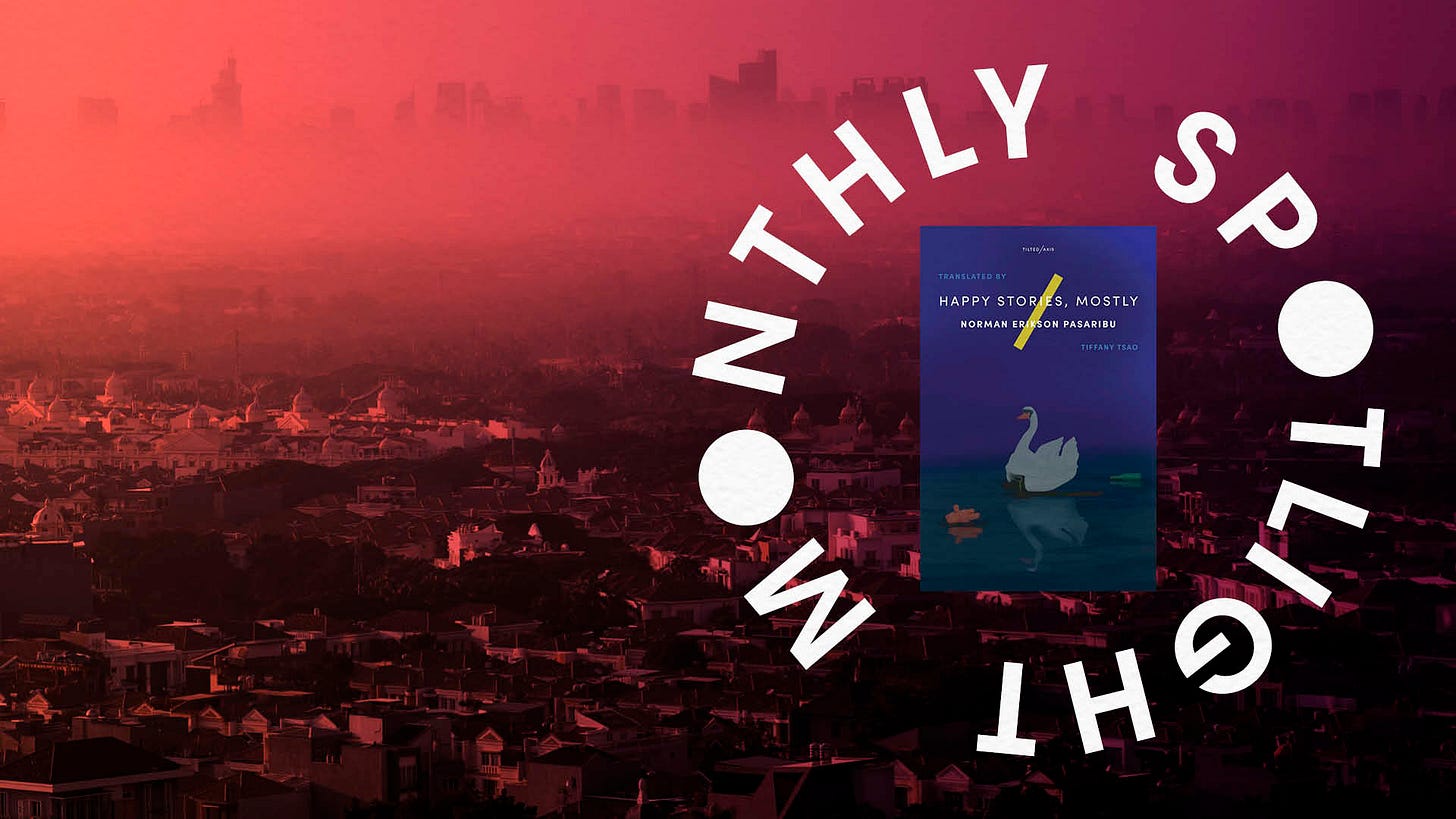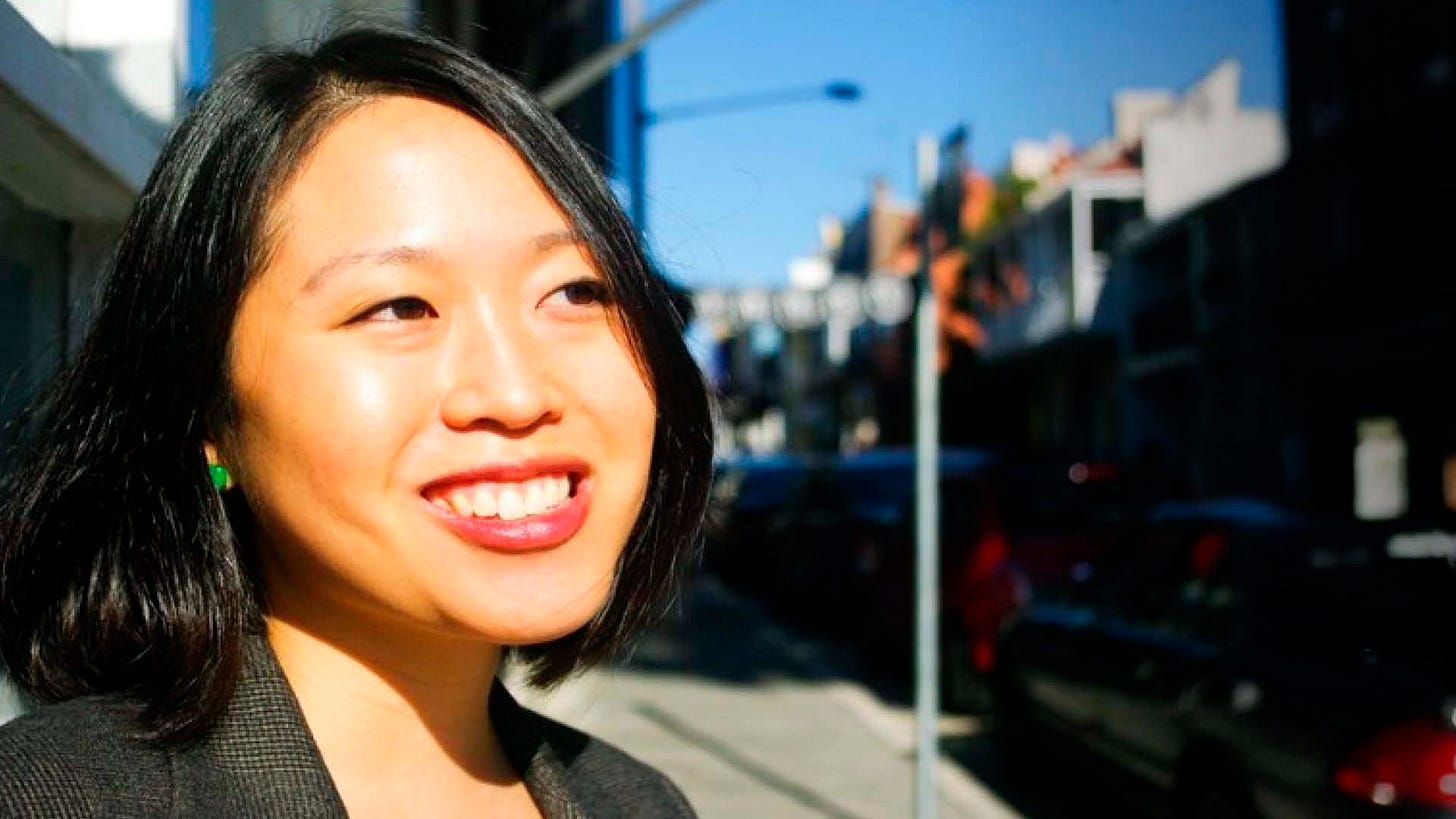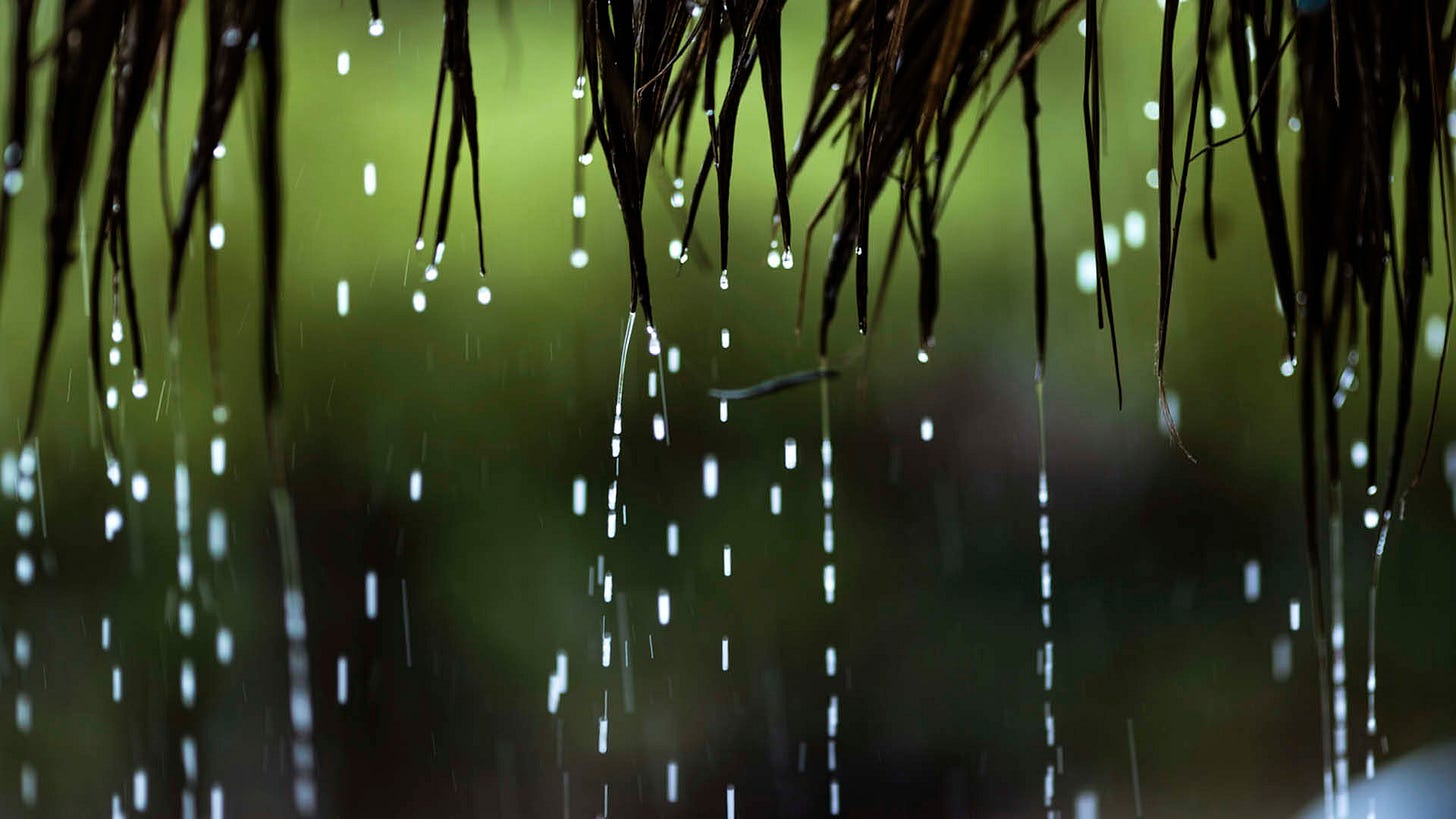Discover our Monthly Spotlight for July: Happy Stories, Mostly
This month, we explore Norman Erikson Pasaribu’s tragicomic short story collection – a book that centres queer experiences and blends the everyday and the absurd
Happy Stories, Mostly begins on New Year’s Eve with a flood.
As the river rises, a door mat creeps into view, a cat yowls and a woman wades through water. The view then changes to the big eye of the sun watching us on our blue orb. Suddenly, a summons, a blackout and a door opening ‘to let in an end’.
It’s a poetic and mysterious opening to a set of 12 tragicomic tales that feature both the domestic and the out-of-this-world. The collection centres queer experiences and exposes the fragility of happiness.
Author Norman Erikson Pasaribu has said the stories were inspired by ‘the time spent with my queer friends, laughing over our miseries and crying over our achievements… Even without us realising it, all this time, we’ve been standing on this edge of the ravine that I called the Hampir, the Almost, and it would only require a gentle tap to make us fall.’
Translated from Indonesian by Tiffany Tsao and longlisted for the International Booker Prize in 2022, Pasaribu’s collection was described by the judges as ‘bittersweet’ and as a work of translation that ‘shimmers and soars’.
Three years on from the nomination, Tiffany Tsao tells us how important it was to bring Pasaribu’s voice to an English-speaking audience. Tsao didn’t want to ‘conform or twist it in any way – it seemed wrong to do that given the amount of suppression and violence queer individuals already face in the Indonesian context’.
Our Monthly Spotlight for July also includes a reading guide and an extract from Happy Stories, Mostly, as well as a chance to win a copy of the book.
A conversation with Tiffany Tsao
‘My favourite story to translate was “The True Story of the Story of the Giant”. There’s a frame narrative, told from the point of view of a spoiled and self-absorbed straight college student, a history major, who strikes up a friendship with a brilliant gay classmate. And via this story, we get glimpses of a true story that has survived only in fragments, snatches, through memory, lost due to the colonial subjugation and murder of the Batak peoples. The utter devastation that colonial violence has wrought parallels the utter devastation that heteronormative mainstream culture, represented by the narrator, wreaks on queer individuals.’
Explore our reading guide
Whether you’re new to Happy Stories, Mostly or have read it and would like to think about it more deeply, this comprehensive guide features insights from critics and the book’s author and translator, as well as discussion points and suggestions for further reading.
Read an extract
‘With the rain, the river rises and rises, bringing brown water to our front door: the dry, yellow dust on the car browning in the damp; the blue welcome mat creeping out through the narrow garage, then the rusty green gate, able to return home only if we recall it should be there, only if we recall it exists; and the mayflies hovering over the surface of the water. From this black window do we eyeball it all.’
Win a copy of Happy Stories, Mostly
Your chance to win a copy of the novel and a limited-edition, money-can’t-buy Booker Prize tote bag. Simply enter your details on our website by 12:00 BST on Thursday 31 July 2025. Good luck!
Enjoy, and don’t forget to let us – and fellow readers – know what you think about Happy Stories, Mostly in the comments.









Fabulous 💕📚💕